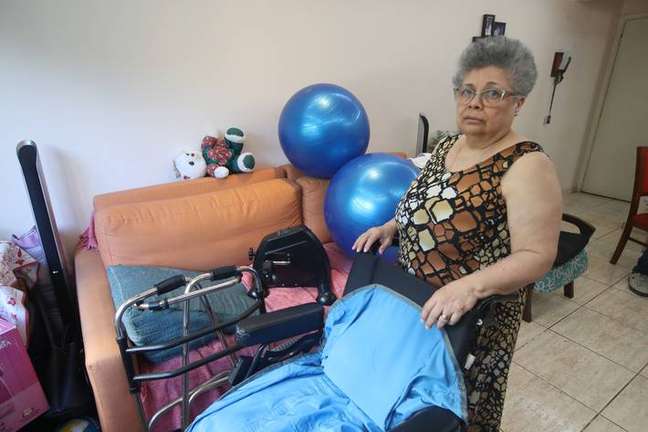The mental disorder that most affects people over the age of 60 requires specialized medicine; IBGE estimates that the number of older people in the country will triple by 2050
The Brazilian population is getting older – and it is necessary to look at their mental health. Depression is the mental disorder that most affects people over the age of 60 – and the Brazilian Institute of Geography and Statistics (IBGE) estimates that the elderly population will triple in Brazil by 2050.
Before pandemic, that was already a problem. According to the 2019 National Health Survey (IBGE), Brazilians between the ages of 60 and 64 had the highest rate of depression: 13% of this population have been diagnosed with the disease. Two years after the start of the pandemic, which imposed a long period of isolation, its effects are still being felt and have consequences.
“Those who were on the razor’s edge, with the pandemic, have fallen. That is, those who already had depressive and cognitive symptoms, isolating themselves and not doing activities, that’s when they became truly depressed. Children and adolescents have been impacted, but for the elderly it has been very devastating,” says the psychologist and doctor of gerontology for State University of Campinas (Unicamp)Denise Ribeiro Stort.
This is what happened to Rosa Maria do Prado Oliveira, 67, who was already going through a difficult time in 2019, and collapsed in the pandemic.
For more than three years, Rosa has been dealing with the illness of her husband, Marcelino do Prado Oliveira, 57, who lives with the after-effects of an aneurysm that made him quadriplegic in 2019. He spent seven months in hospital and Dona Rosa she accompanied him every day during this period. “He arrived at the hospital talking and walking normally, but left without being able to speak, without being able to eat, without walking. It was very difficult,” complains the psychologist, who lives in São Paulo with her husband and the 25-year-old – old daughter.
Subsequently, their lives had to be adjusted: She became her husband’s caregiver, with a team of health professionals at home to help Marcelino recover on a daily basis. When the pandemic started a few months later, everything was more complicated, due to social isolation and the fear of the virus that circulated widely.
In addition, she and her daughter had to take on some tasks that were previously done by the professional team, because it would be risky to bring other people into the house. “My workload was already high, but it skyrocketed during the pandemic. I went two years without going out at all.”
Help
At the end of 2020 the diagnosis arrived. After months with symptoms of depression, Rosa decided to seek help after insistence from friends and her daughter. “I completely lost my peace. I was sad and stressed. I didn’t sleep and didn’t want to do anything, I just felt a extreme tiredness🇧🇷 There were days when I didn’t want to live anymore, it was very heavy,” she says.
Gradually, she got better with treatment. She started seeing a psychiatrist and taking medication for the depression🇧🇷 The doctor’s support was very important for Rosa. “It helps that you know you already have someone to call. It gave me the welcome I needed, it did me a lot of good.”

Online courses have also helped. Rosa started taking lessons on the computer, on topics related to psychology, her field of expertise, as well as taking singing lessons via video. Even today the psychologist is afraid of catching the covid, but she doesn’t stop going out, taking a breath in the midst of the tiring routine and meeting her friends.
According to geriatrician and vice president of the Brazilian Society of Geriatrics and Gerontology (SBGG), Marco Túlio Gualberto Cintra, socialization is very important to prevent premature aging.
“There are many seniors who were fine in 2019, and now, in 2022, their health is deteriorating. We see cognitive decline, movement problems, increased mood disorders. It was a health emergency, there was no other choice but isolation, but the price to pay is not small: the brain needs stimuli, if the person stays at home, aging accelerates ».
Diagnosis
In the case of the elderly, the lack of socialization and contact with people close to them can also make it difficult to diagnose physical and mental disorders. Many people are reluctant to ask for help, as was the case with Rosa.
“The elderly begin to experience a more solitary suffering, due to the social profile of ageing, that is, the decrease in emotional ties and daily activities that fill spaces. difficulty for others to perceive that the person is not well,” says psychiatrist Ana Paula W. Lange, who works as technical director at Hospital Francisca Júlia, a Life Appreciation Center (CVV).
Elderly people are often afraid of disturbing the family, even when there is support, the doctor explains. Therefore, there is often a late diagnosis, with the disease already in a more advanced stage. When it comes to mental health problems, this can have serious consequences, because depression can evolve and lead, for example, to cognitive impairment.
“Depression, if left untreated, can lead to Alzheimers🇧🇷 The risk that disorders appear more pronounced in the elderly is great “, adds psychologist Denise, who studies mental health and quality of life in old age. According to the Vigitel 2021 survey by the Ministry of Health, 12.8% of adults over 65 reported a diagnosis of depression. Other diseases and morbidities common in this age group can also be a risk factor for depression, such as chronic pain.
🇧🇷The best content in your email for free. Choose your favorite Terra newsletter. Click here!
Source: Terra
Ben Stock is a lifestyle journalist and author at Gossipify. He writes about topics such as health, wellness, travel, food and home decor. He provides practical advice and inspiration to improve well-being, keeps readers up to date with latest lifestyle news and trends, known for his engaging writing style, in-depth analysis and unique perspectives.






